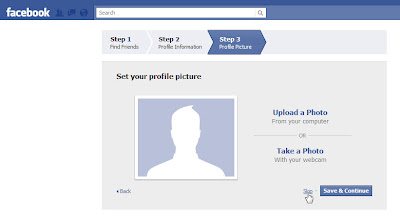Imagine, then, being in your retirement years and learning about Facebook as well as the web for the first time. I recently spent time a small group of people who were new to Facebook. They'd heard about it and were nervous, but willing to have a look.
We spent 10 minutes discussing why Facebook was requiring a complete birth date - day, month, and year - in order to create a new account.
I explained that the Facebook terms of service required that you created an account with your real and correct information. Part of the reason for requiring a true birth date was to enforce requirements for the minimum age (13). The group met the minimum age five-fold.
The people weren't vain about their ages. They just didn't like having to provide their birth dates. They were concerned about identity theft, even though they weren't quire sure what that meant or how it would happen.
"Can I use my son's birthday?" asked one. They didn't mind providing a date; they just didn't want it to be theirs.
One man signed up using his wife's birth date, knowing that, if he forgot that date, well, ....
Facebook has a minimalist explantion:
Facebook requires all users to provide their real date of birth to encourage authenticity and provide only age-appropriate access to content. You will be able to hide this information from your profile if you wish, and its use is governed by the Facebook Privacy Policy.
It's well known that a large number of children are using Facebook.While Facebook requires a birth date, it doesn't include any overt way of verifying it. (A father in Northern Ireland has brought suit against Facebook because his 12-year-old daughter has created an account. It's a long and somewhat complex story, as you might imagine.)
In sum, Facebook is requiring a piece of personal information, won't really explain why or what it will do with the information, and has a history of tolerating fake answers.
And that's just the beginning of the beginning. More questions.
 |
| What's this? Do I have to upload my email address book? No? OK. Skip this step. |
 | |
| I don't want to give this information. OK? Skip this step. |
 |
| Do I have to put in a picture? Why? How do I do that? OK. Skip this step. |
This is what 700 million people are excited about?
Meanwhile, Facebook is due to announced major new features and user interface changes at this week's developer conference. New features that include more music, news, and videos.
We know that Facebook's corporate DNA is in college or those who still think that they're in college. The unfriendly sign-up process, the nagging demands for more information, and the cacophony of features are making Facebook increasingly irrelevant to digital immigrants, those who come to web technologies later in life. I don't know if that's the plan, but it certainly is the effect.
No comments:
Post a Comment